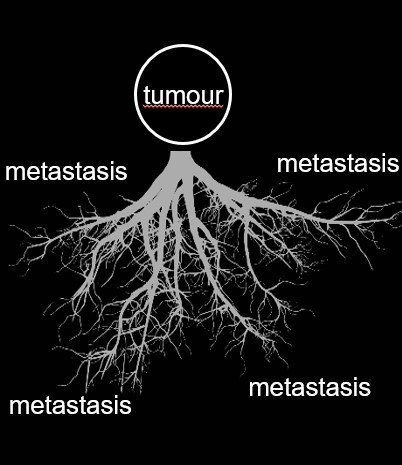“Metastases are the main cause of death in cancer.”
Professor Tommy Andersson, CSO and founder WntResearch
Approximately, 90% of all cancer deaths are due to metastases.
Uncontrolled spread of cancer cells, known as metastasis, is life-threatening and occurs in all forms of cancer. The protein WNT5A has been shown to play an important role in the ability of the cancer cells to spread. It has been shown that cancer cells with high levels of WNT5A are less mobile and, therefore, also less likely to cause metastases.
Cancer cells not only have the ability to divide and grow uncontrolled in and around the tissue in which they occur, they can also completely release themselves from the primary tumour and form so-called metastases (also called daughter tumours). Often the occurrence of metastases is what determines the prognosis of a newly discovered cancer and it is thus the spread of tumour cells to other organs that are the real danger of the disease. Approximately 90 percent of all deaths caused by solid tumours are due to metastases that have spread to other organs in the body than the organ where the tumour originally occurred.
Metastases can occur in the majority of all cancers. Metastases are usually located in adjacent lymph nodes, known as regional metastasis. When the tumour spreads to organs in other parts of the body, this is called distant spreading. The organs that most often suffer from metastases are the lungs, the skeleton, the liver, the brain and the lymphatic system.

The metastatic process begins in a primary tumour. When the primary tumour develops and grows, the cancer cells change through a series of sequential intracellular events. The cancer cells, among other things, become more agile because the adhesiveness is impaired. However, it is not only the specific properties of the tumour cells that play an important role in the metastasis process, but also surrounding cells. Changes in the surrounding environment of the tumour can influence the likelihood of metastatic disease. Today, there are no specific treatment methods that counteract tumour spread. Metastases are usually treated in the same way as the primary tumour itself, that is, primarily with radiation, surgery and chemotherapy

